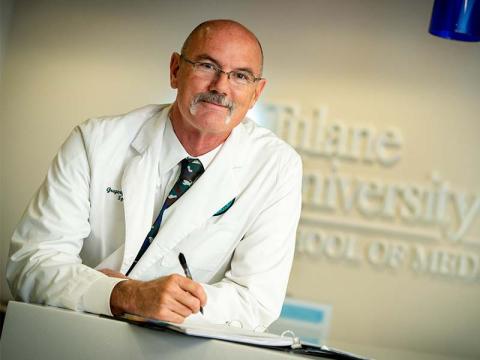Tulane medical expert Dr. Greg Stewart discusses the challenges of veteran health care, new treatment concept
The national observance of Veterans Day is an opportunity to recognize and thank the men and women who have served in the armed forces. It’s also essential to acknowledge the challenges some of our hero’s face when it comes to receiving quality health care.
Military veterans endure, perhaps, the most physically and mentally demanding profession, from which very few walk away without consequences. Medical care for veterans after they have served their country is a crucial resource for life after the military.
Tulane University’s Dr. Greg Stewart, the W. Kennon McWilliams Professor in Sports Medicine, is the medical director for the Tulane University Center for Brain Health, whose central mission is to provide care for military veterans regardless of discharge status.
Stewart recently spoke to Tulane’s On Good Authority podcast about the hurdles veterans face in receiving quality health care and the difficult challenge in finding some of these wounded warriors suffering from invisible wounds. He also explained a new, successful treatment concept to help veterans heal and lower risks for suicide.
“We are examining the different issues that lead to suicide, including depression, substance use or abuse, self-medicating, underdiagnosed or those diagnosed with mild traumatic brain injury,” Stewart said. “These are some of the major areas that need addressing to prevent veteran suicide. However, we have found that post-traumatic stress disorder in and of itself is not a high indicator of the potential for suicide. We need to look at some of these other areas to help our wounded warriors. One of the major challenges is simply finding these individuals and trying to get them to seek treatment.”

